Charities combine strength for the benefit of horse welfare
Staff at Hall Farm and Penny Farm welcomed groups of new RSPCA recruits for training.
Posted on 14/10/2022
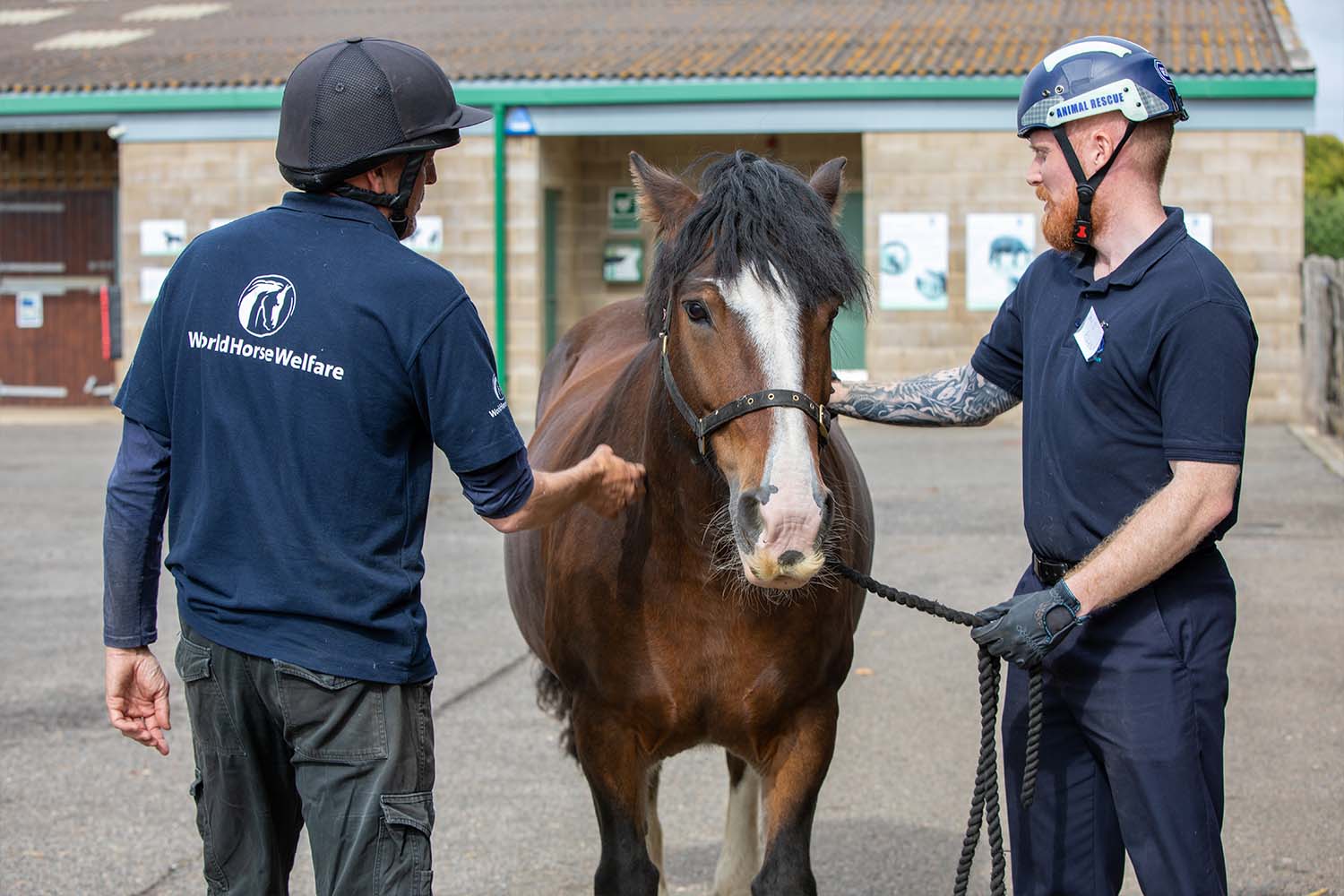
Staff at two of our Rescue and Rehoming Centres welcomed groups of new RSPCA Inspectorate recruits for training to prepare them for assessing and handling any horses they may come across when attending welfare concerns around the country.
We have pooled our expertise with RSPCA for the first time to train the latest intake of Animal Rescue Officers with both theory learning and practical hands-on experience. Twelve recruits got to grips with horses at Hall Farm Rescue and Rehoming Centre in Norfolk and another group of eleven were hosted by Penny Farm, our centre near Blackpool. Each group of Animal Rescue Officer recruits spent two days at one of the farms. The RSPCA deals with many different types of animals and whilst a number of officers are already experienced horsewomen and men, some of the new recruits may have had little or no experience of horses.
“Dealing with any animal involves risk and horses are large animals with high risk, so learning how to handle them safely and effectively is essential. Learning how to approach horses in the stable and in the field, and to assess their body condition is so useful. To be able to come to a World Horse Welfare farm and gain knowledge and expertise from them in an area they excel in has been invaluable. World Horse Welfare is a great partnership for us, we value their expertise in the equine field.”
Melanie Fisher, RSPCA Inspector – Learning & Development
“Collaborative working between the equine charities is now the norm, particularly on large cases. We can meet each other and see how each other works and how the teams operate, because these are the guys we will be calling out if we need them, and vice versa.”
Jon Phipps, World Horse Welfare Deputy Chief Field Officer and course leader
On the first day of each course the groups learned how to approach horses in the field and in stables, how to hold and examine them safely and how to lead them. Dealing with difficult horses was covered as well as finding out what to look for when assessing the horse’s condition. These practicals were interspersed with classroom sessions on such diverse topics as euthanasia and trespass laws.
On the second day the rounding up and loading of horses onto horse transport was practiced and a final practical mock case brought everything the group had learned into action.
“We all bring different specialities to the table and we need that breadth of knowledge and experience. We aim to repeat this course and to continue for each new intake, to develop this partnership for the benefit of horse welfare”
Jon Phipps, considering the future of this collaborative course

Topics
Related News
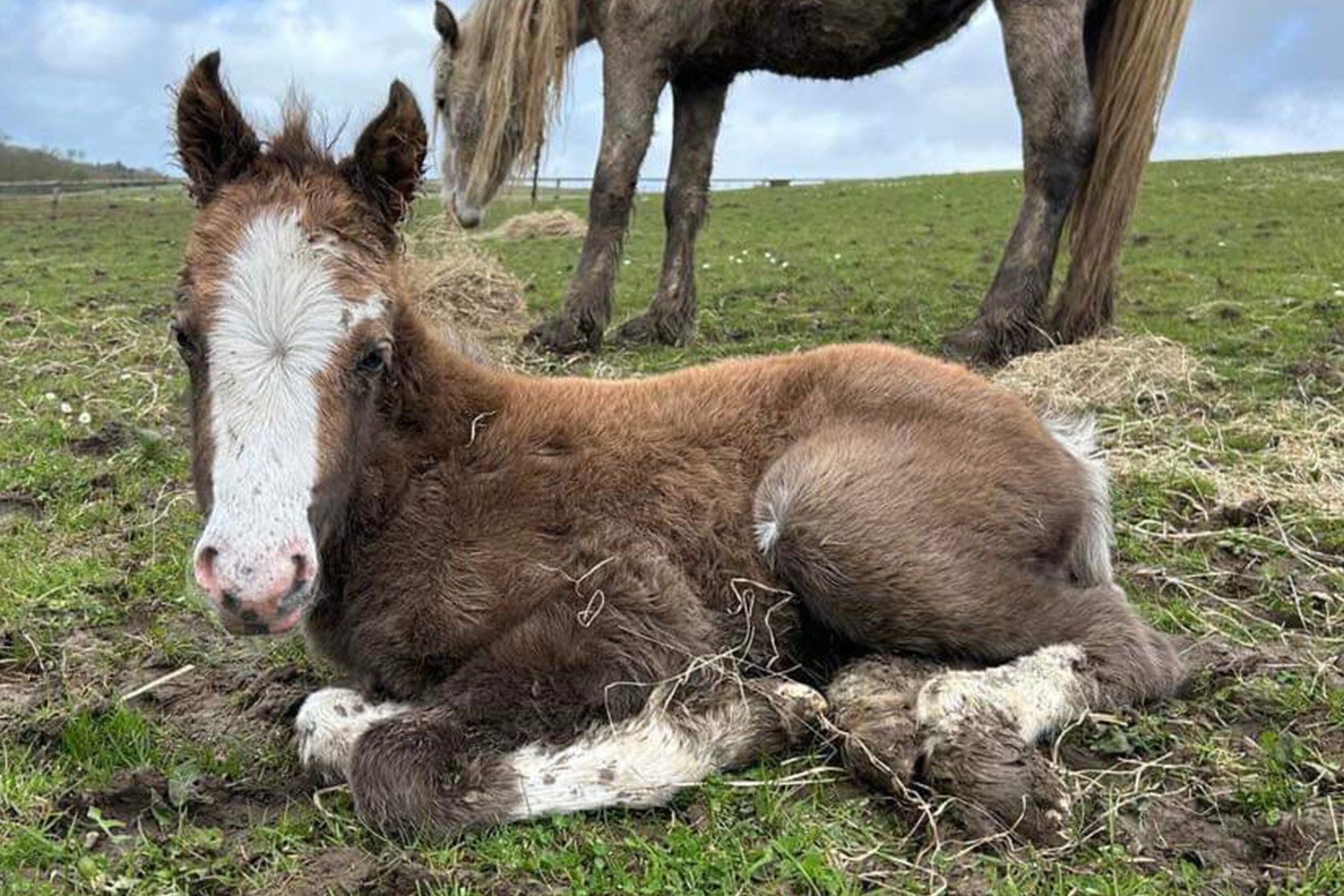
Poppy is a total poppet
First foal of the year brings joy to the team at Glenda Spooner Farm Rescue and Rehoming Centre
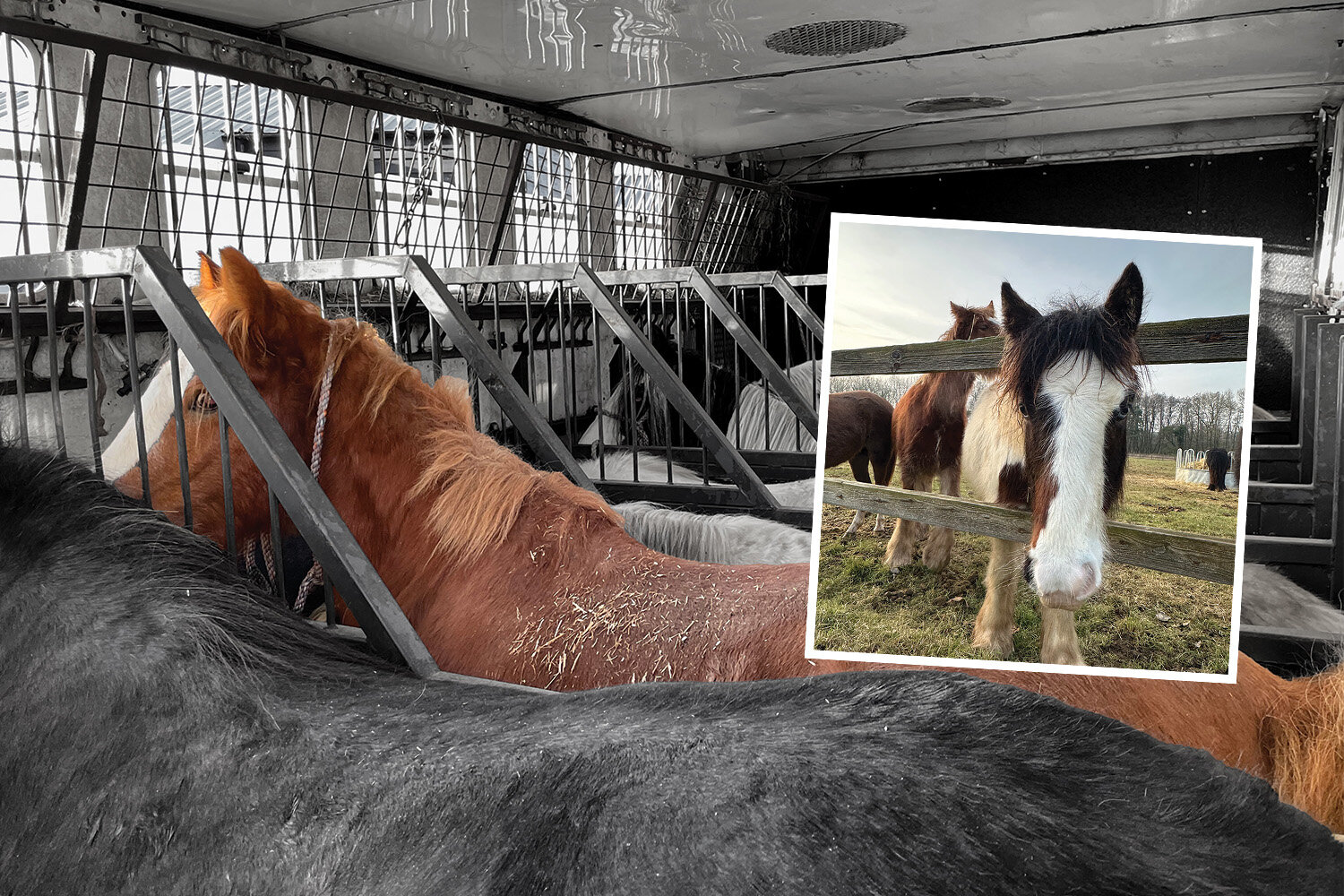
Horses rescued from being cruelly smuggled abroad are progressing well
The Dover 26 - where are they now?
Recommended Blog Posts
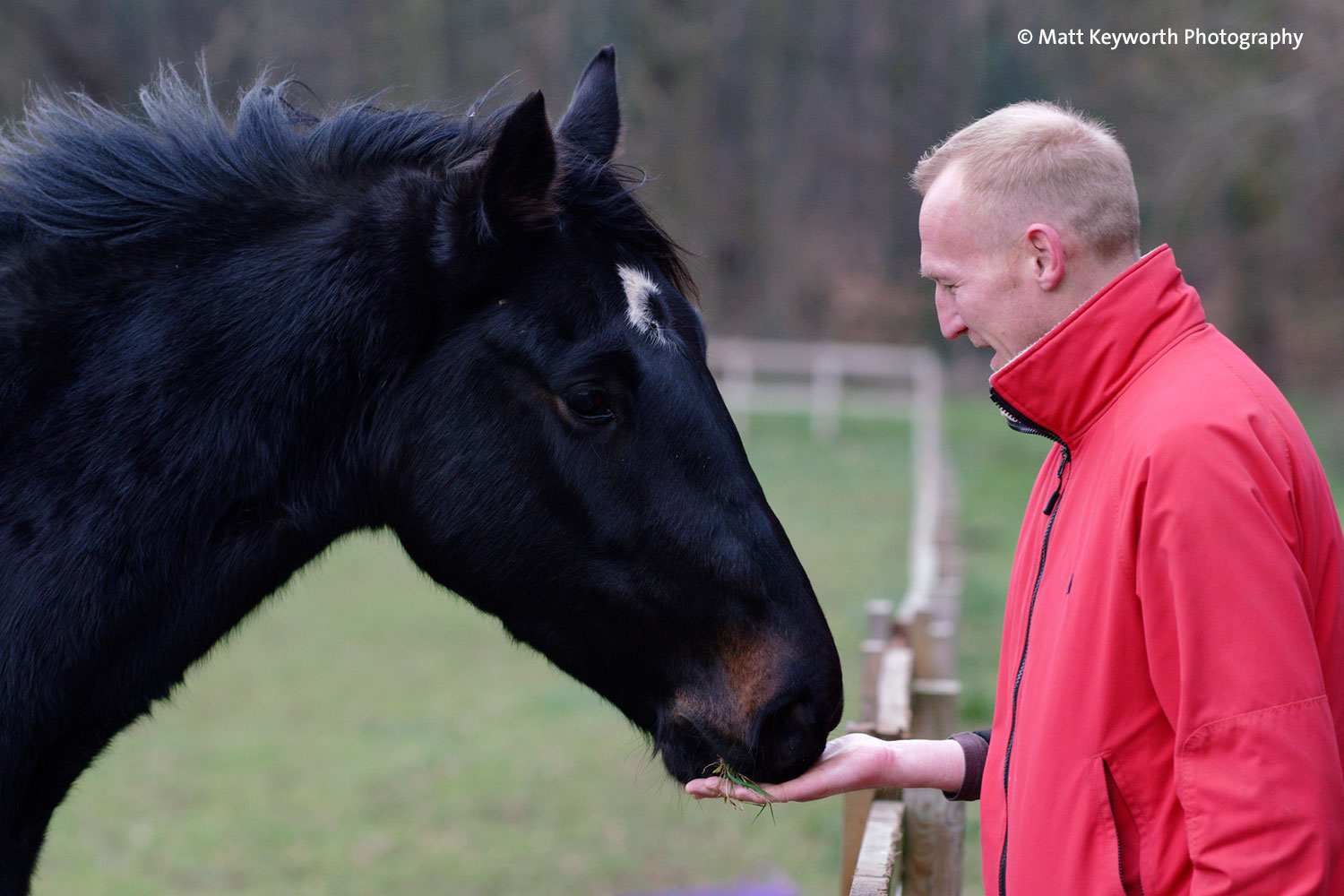
Autumn worm control: which worms should you test for?
Field Officer Chris Shaw explains which worms you should be testing for in the autumn – and why it’s so important to test before treating.

How to help a needle-shy horse overcome their fear
Grooms Amy and Emily explain how they work with horses who are nervous with needles before a visit from the vet.
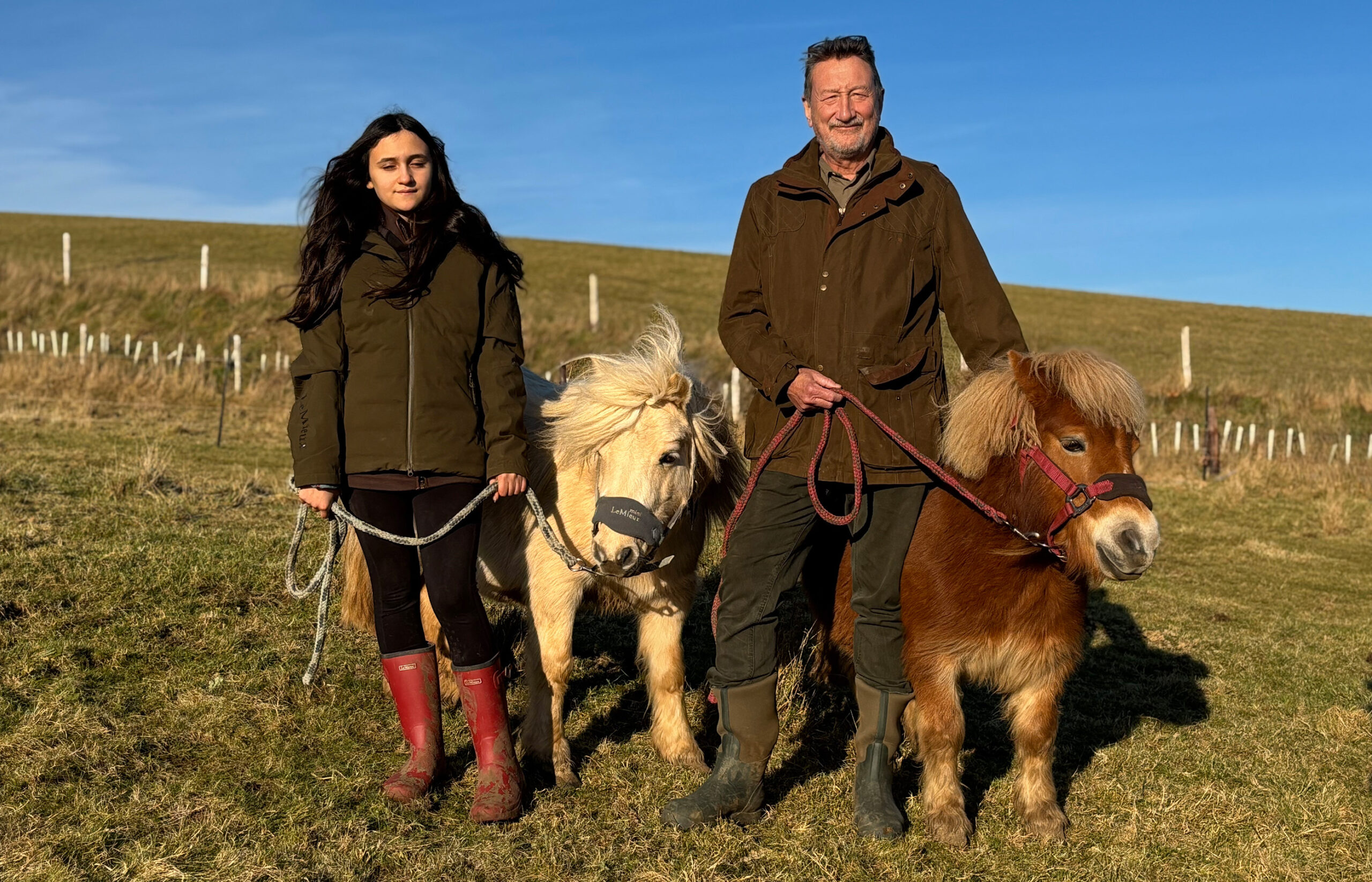
“I am a horse”
We catch up with the creator of Peaky Blinders to find out how important horses are to him and his family.
Enjoy reading stories like this?
Join over 65,000 other horse lovers and sign up for our email newsletter

Join over 65,000 other horse lovers and sign up for our email newsletter
Sign me up now